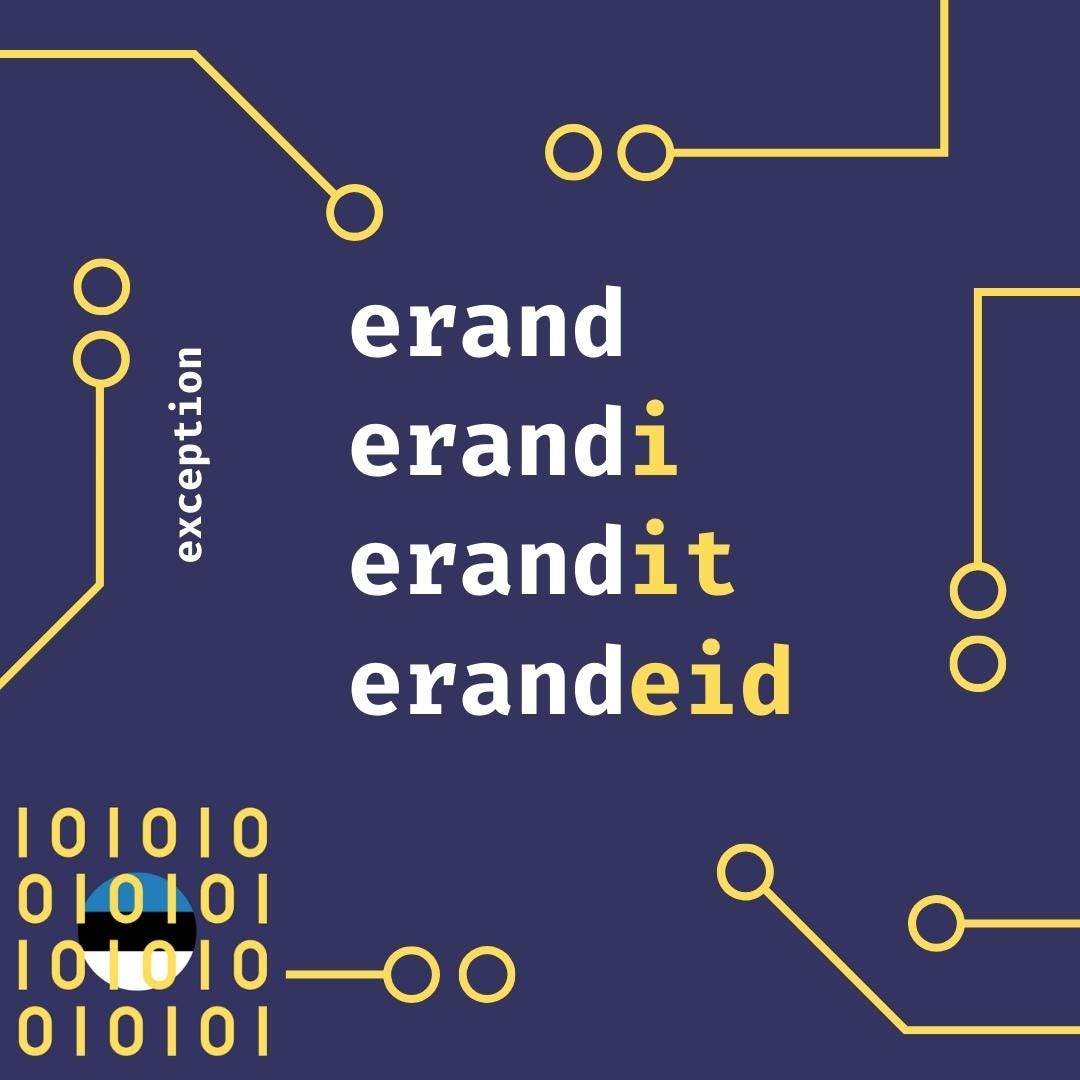Vocab: erand
exception
(an) exception
Building blocks
era- private
-nd - a noun-forming ending
The noun that is created expresses something related to the action, thing, or quality indicated by the base word.
Similarly to the previous word we looked at (erinev) this word is also derived from Proto-Indo-Iranian: er - loose, detached.
According to Sõnaveeb the word era was brought into the written language in 1860, because Estonian was lacking an equivalent to the German word “privat” (cf English “private”).
How to use it
Of what you make an exception is in the Elative case (ending -st).
Exceptions can:
kehtida (apply, da-infinitive)
toimida (function, da-infinitive)
võimaldada (allow, da-infinitive)
Things you can commonly do with exceptions:
kehtestama (to establish)
kinnitama (to validate/to assure)
muuta (to change)
Examples
Erandid kehtivad vanuritele ja õpilastele
Literally: “Exceptions apply elderly and students”
Idiomatically: “Exceptions apply to the elderly and the students”
Erandid - Noun - Nom Pl, "Exceptions"
kehtivad - Verb - 3P Present Pl, "apply"
vanuritele - Noun - Allative Pl, "elderly"
ja - Conjunction, "and"
õpilastele - Noun - Allative Pl, "students"Haiguse tõttu tehti lapsele koolitöö tegemisest erand
Literally: “Illness (due to) (was made) (onto child) schoolwork’s doing-about exception”
Idiomatically: “Due to the child’s illness an exception was made from doing homework”
Haiguse - Noun - Gen Sg, "Illness"
tõttu - Postposition, "due to"
tehti - Verb - Impersonal Past, "was made"
lapsele - Noun - Allative Sg, "onto child"
koolitöö - Noun - Gen Sg, "schoolwork"
tegemisest - Noun - Elative Sg, "doing"
erand - Noun - Nom Sg, "exception"

